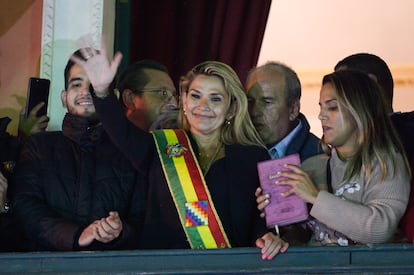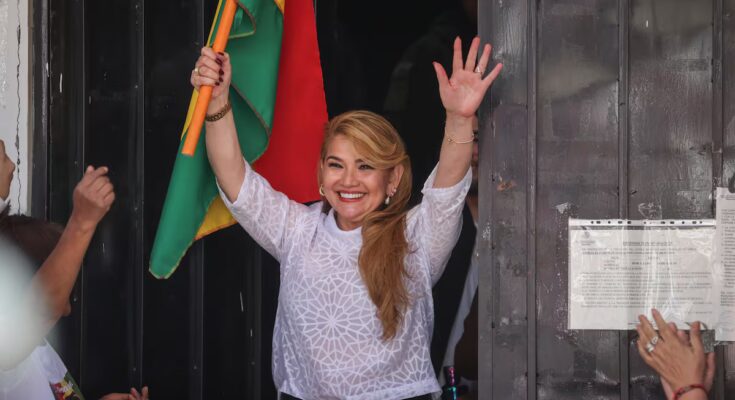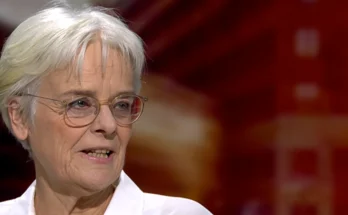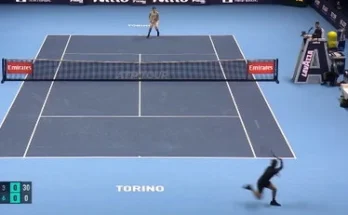Former president of Bolivia Jeanine Anez (2019-2020) was released this Thursday after spending almost five years in prison, convicted of the 2019 coup. The decision was made by the Supreme Court of Justice (TSJ), which accepted a review of the sentence requested by the former president’s defense. The judicial body thus goes back on the resolution issued last September, when it denied the same request for freedom. “There has never been a coup d’état in this country, it was an electoral fraud,” Áñez said as he emerged from Miraflores prison in La Paz, in front of a crowd and holding the Bible and the national flag.
The former head of state faces at least seven other trials, including that of crackdown on protests after the overthrow of Evo Moraleswhich resulted in around twenty deaths, and alleged corruption irregularities. Now, however, she will defend herself freely and will be prosecuted with a trial based on responsibility, and not with the ordinary methods, as had happened until now. Seven of the court’s nine justices voted in favor of the ruling. “Jeanine Áñez did not act intentionally, did not harm a protected legal asset and her actions were protected by a state of constitutional necessity aimed at preserving the institutional continuity of the Bolivian State,” the document reads.
Áñez’s main argument, which Justice now supports, is that the charges against her must be dealt with by the Legislative Assembly, which must authorize the opening of an accountability trial with a two-thirds vote, and not as if it were an ordinary citizen. The path to his release was seen in August, when the TSJ suddenly instructed the courts to review the pre-trial detention periods of those being prosecuted for conducting the political uprising of October and November 2019. The ruling held that the defendants had been held without sentencing for a longer period than permitted by law (24 months).
Áñez was later released from pre-trial detention due to the open cases, but it still weighed on her. a 10-year sentence for the case known as coup d’état II. The facts that led to Morales’ resignation were investigated during the outgoing government of Luis Arce and the Prosecutor’s Office divided the complaint into two parts. The first, coup d’état Iinvestigates what happened before Morales’ resignation; Áñez and other civic leaders are charged in that case with sedition, terrorism and conspiracy. Instead, coup d’état II It focuses on how Áñez assumed power, which is why she was found guilty of the crimes of breach of duty and resolutions contrary to the Constitution.
“I will never regret having served my country when it needed it (…) I made the commitment knowing that they would want to break me,” the former president said on Thursday. Morales forcibly resigned on November 10, 2019after the Army and Police withdrew their support and decided to support the street protests They alleged fraud in that year’s election. Two days later, Áñez, an opposition senator, proclaimed herself interim president in a parliamentary session without a quorum due to the absence of the pro-government wing. The TSJ now claims that a power vacuum has arisen due to the mass resignations of senior ruling party officials, which has altered the constitutional succession.

On November 24, representatives of Morales’ ousted party, the Movement towards Socialism (MAS), agreed to be part of a dialogue to achieve the transition. During that period of legitimation, at least 22 people who rejected the new government died due to violent police and military repression. The then president he signed a supreme decree that exempted the military from criminal liability.
The Association of Victims of the Sacaba and Senkata Massacres described Áñez’s release as an “alignment” of Justice with the new center-right government of Rodrigo Paz, which takes office this Saturday. “The decision discredits the victims. It’s there a report from the IACHR which clearly says that in the Áñez government there were torture, massacres and violations of human rights (…) The TSJ denotes submission to the new order”, the organisation’s spokesperson, David Inca, reported to the media. Leaving the penitentiary centre, the former head of state declared on Thursday: “The monster had to go so that the administrators of Justice act according to the norm”.
The president of the MAS, Grover García, and the representative of the Peasant Confederation Bartolina Sisa also spoke out against the sentence. While members of the opposition, such as Carlos Mesa, or international personalities, such as Venezuelan Corina Machado, celebrated the resolution.



